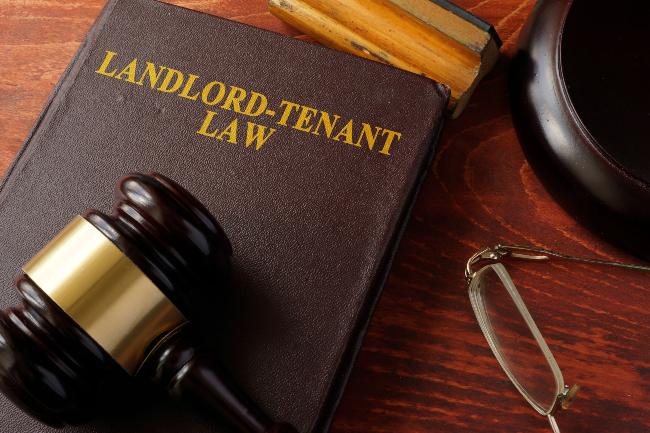Real estate is a big-ticket asset investment. It is a numbers game. If you plan it right from the beginning, it could very well increase your wealth.
But in the current market conditions, which is a better investment? Physical property or real estate investment trusts (REITs)?
Datuk Stewart LaBrooy, executive chairman of AREA Management Sdn Bhd said: “Real estate can be an excellent investment... but you should be sure you’re ready to make the commitment before taking the plunge.”
LaBrooy said he prefers to invest in “less stressful” investment assets such as REITs instead of real estate.
“When you invest in physical properties, your hope is that you find a great asset that you can generate income from. Alternatively, some investors may invest in property in the hope of flipping it for a profit when the market is in favourable conditions.
“When you buy a property, the expectation is that you only have to fork out the downpayment, and thereafter collect rental from it and use that rental to offset your mortgage. While the property is rented, your other expectation is that you will continue enjoying capital gains in the property value. It all looks and sounds easy, but the reality is... it doesn’t always go the where it is planned. Do you know if your property can be rented out easily or at your target price? How would you know what is going to happen two or three years after you have bought the property?” he told NST Property.
LaBrooy said he avoided buying a house or an apartment. “I am happy living in Klang, in a house where my family grew up in. I rather invest my money in REITs as there’s income through dividends in spite of a market slowdown.”
REIT STORY
A REIT is a listed vehicle that invests in a portfolio of income-generating properties such as offices, retail spaces, hotels, hospitals, industrial and shopping malls.
Some Malaysian REITs (M-REITs) specialise in an asset class while others offer a mixed portfolio. Whether one or a few asset classes, they provide a steady income from rent under lease contracts and potential capital growth.
Rents collected from tenants, fewer expenses, are distributed on a regular basis to provide stable yields to REIT unitholders. This distributed income to unitholders is subject to a one-time withholding tax of 10 per cent for individuals.
In 2005, the Securities Commission (SC) introduced the Malaysian REIT Guidelines which resulted in the listing of Axis REIT and Starhill REIT in the same year. Since then, the M-REIT market has seen tremendous achievements. There are currently a total of 18 M-REITs with a total market capitalisation of about RM42 billion and a total asset size of RM49 billion.
LaBrooy said the market typically likes M-REITs with strategically-located prime retail assets, such as KLCC Property Holdings’ Suria KLCC, Pavilion REIT’s Pavilion KL Mall, IGB REIT’s Mid Valley Megamall and Sunway REIT’s Sunway Pyramid Shopping Mall, which have relatively stronger holding power for rental hikes and the industrial space, which is growing in a dull market.
WHY REITS MAKE GOOD INVESTMENT CHOICES?
1. REIT is professionally managed
A REIT is run by a professional management company (REIT Manager) which is licensed by the SC under the Capital Market Services Act. Strict compliance with the SC and Bursa Malaysia Securities’ regulations is mandatory. The REIT Manager is responsible for asset maintenance, ensuring property vacancies are kept at a minimum, prompt rental collection, dividend payments, prudent capital management of the trust and enhancing the assets when needed. Most importantly, the REIT Manager is there to keep tenants happy by eliminating the business risk for the investor.
2. Many REIT options available
There are 18 property-related REITs listed on Bursa Malaysia. Investors have options to invest either in retail, commercial, industrial or healthcare REIT.
3. A small investment to own a property
Unlike property that requires a big initial investment outlay, you can invest a small amount in a REIT, giving you some ownership of a big portfolio of high quality, income-producing and well-maintained real estate, and enjoying their appreciation in value.
4. It’s easy to buy and sell REIT units
As all REIT units are listed on Bursa Malaysia, they trade like normal stocks and their prices are transparent. Buying a property may take more than six months to complete and involves an agency commission. But buying and selling of REIT units can be done almost instantly and is much cheaper to transact.
5. Dividend payout
Most of the REITs pay a quarterly dividend, which is as good as collecting rent from tenants.
6. Tax advantage
For REITs that distribute at least 90 per cent of their total yearly income to unitholders, the REITs are eligible for exemption from the corporate tax rate of 25 per cent under Section 61A of the Income Tax Act 1967 for that year of assessment. However, the withholding tax would be applicable on REIT dividends that have been exempted at the REIT level.
7. Asset sale with dividend payout
Some REITs sell their assets when they get a good offer. You don’t have to worry when that happens as the gains will be fully distributed back to investors as special tax-free dividends.
8. Hedge against inflation
Like properties, investing in a REIT is a good hedge against inflation and a safeguard of your investment. A REIT provides both a cash dividend return every quarter as well as a capital gain if it is well-run and successful.

.jpeg)











.jpeg)
